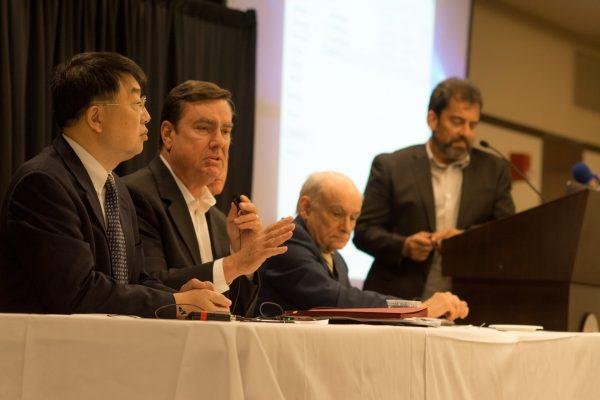SAN DIEGO—The state senator spoke with passion about what really gives meaning to public service. “There are very few issues in our lives that we can stand strong and really make a difference,” said California State Senator Joel Anderson (R-El Cajon). “And standing up for human rights, no matter where they are in the world, I believe is that issue.”

State Sen. Joel Anderson (2nd L) and International human rights lawyer David Matas (2nd R) at the Human Organ Trafficking panel at SDSU on Nov. 1, 2017. Epoch Times




